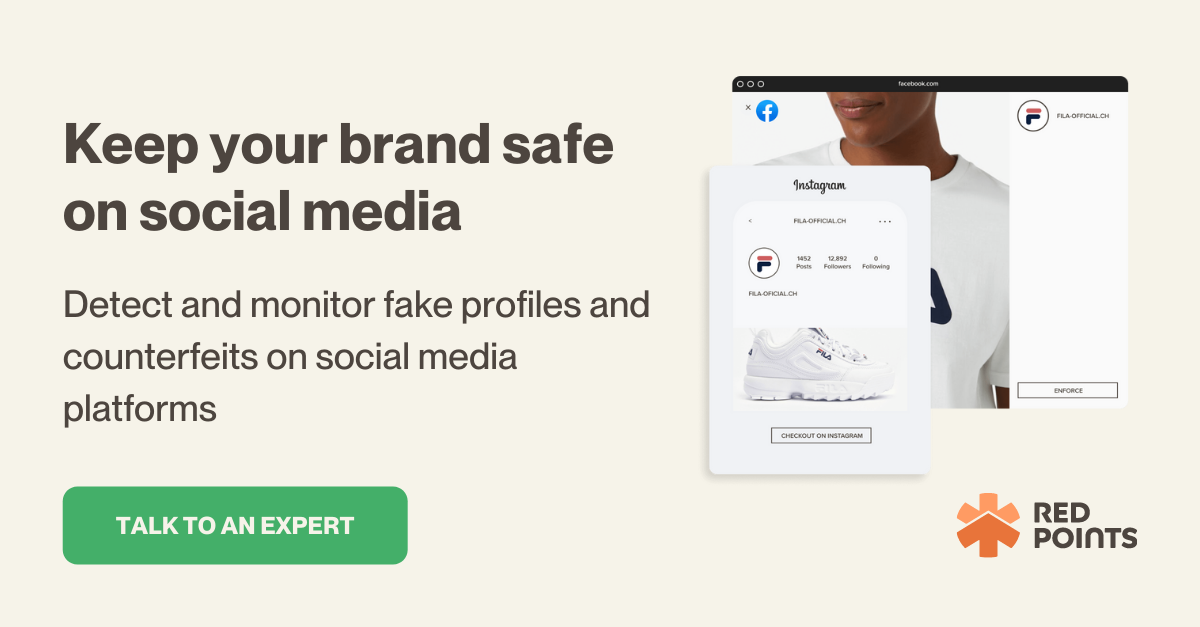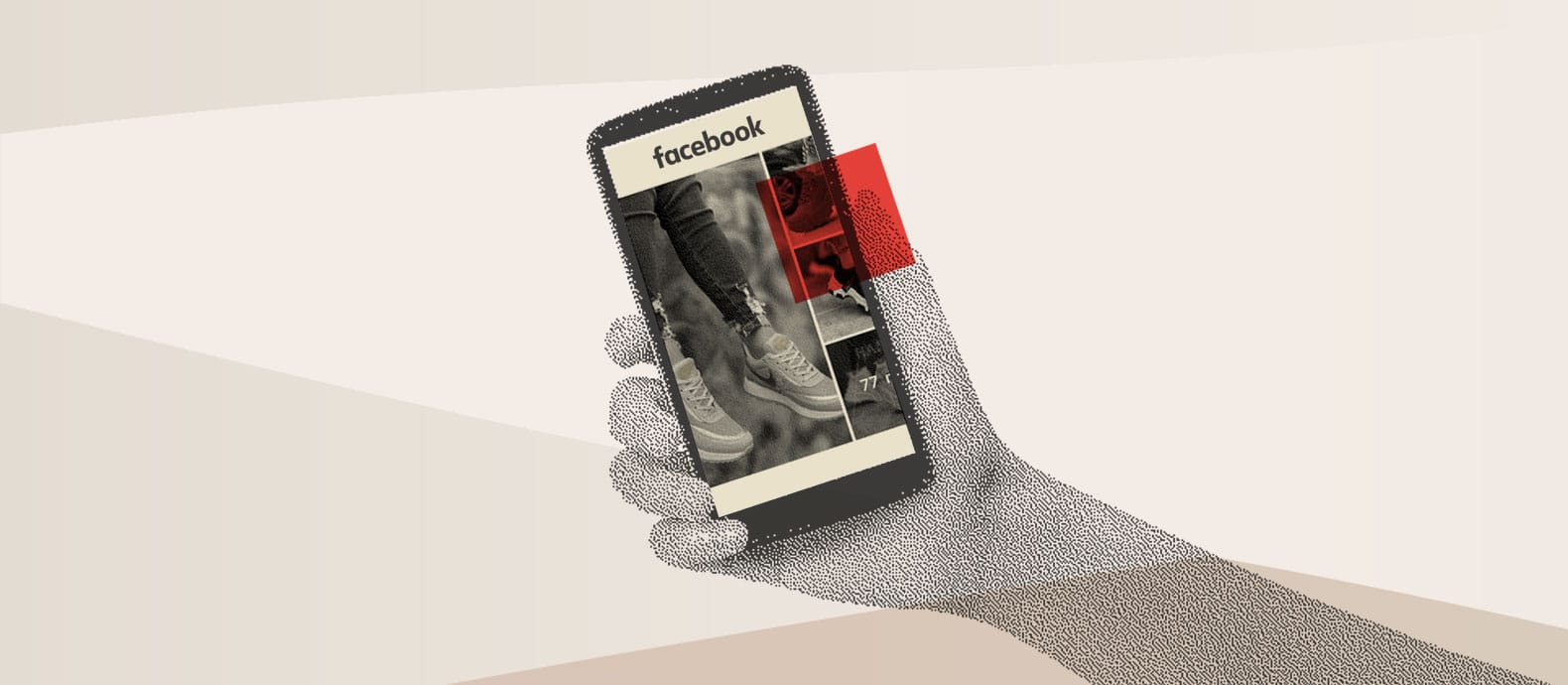With over 3 million advertisers on its platform, businesses small and large utilize Facebook to get their products and branding in front of potential customers. Unfortunately, a significant number of these advertisers are running Facebook scam ads through their accounts, and this problem continues to grow.
These scams don’t just harm consumers and can have a very real negative impact on legitimate brands’ sales and brand reputation.
This guide will explain how to spot and report Facebook scam ads, and equip you with the information you need to properly protect your brand.
Summary
- Facebook ad scams come in many forms
- Ad scams on Facebook negatively impact legitimate brands
- Brands need a plan in place to report and remove fake ads on Facebook, as well as the fake websites where bad actors are redirecting users to
What are Facebook ad scams?
Facebook ad scams are fake ads that utilize various techniques to fool consumers into believing they are buying from a legitimate brand. A popular Facebook ad scam involves using stolen trademarks and other intellectual property from legitimate brands to fool consumers. Scammers can copy a brand’s marketing straight down to their branded photos, linking back to their own fake websites when consumers click on the ad. Scammers don’t even need a fake product to sell, as some of them simply charge consumers and hope they forget to issue a refund when the product never arrives.
Another Facebook ad scam rising in popularity includes hacking into a brand’s own business page. Scammers can then post their own ads through the account, using the brand’s credit card to pay for the ad. This digital marketer realized she had been hacked when “$15,000 per day ads” began appearing across her client’s pages for a product that had no relation to them (Mashable).
Even if your brand doesn’t utilize Facebook to advertise, it can still be targeted by Facebook ad scams. Take Kristi Pimentel, an Etsy seller whose story was covered in this article by Time, for example. Scammers stole her product photos from Etsy and used them to attract customers to buy their counterfeit products.

Facebook ad scams: why scammers use them
Scammers use Facebook ad scams because they can be extremely profitable. In the same FTC report listed above, $117 million of consumer funds were lost to social media scams only six months into 2020. That’s a very big reward for little effort and risk on the part of scammers running fake Facebook ads.
Though Facebook tries to deter scammers, it remains incredibly easy to make a Facebook ad scam. Ads on Facebook take minutes to create and can be up and running on the platform the same day. Even if their fake ad is reported and taken down, scammers can easily make a new account and begin again if they aren’t prosecuted. This creates a costly, time-wasting cycle of fake ads that can become extremely difficult for a brand to fight against.
The impact of Facebook ad scams on businesses
Consumers aren’t the only ones who suffer from Facebook ad scams. The legitimate brands these scams target can face severe consequences when fake ads aren’t immediately identified and taken down.
If even one consumer is fooled by a fake ad using stolen IP from a legitimate brand, that means revenue lost for that brand. It also creates unfair competition, because scammers can price their counterfeit products at a lower rate than any legitimate brand ever could. Revenue isn’t the only thing these brands have to lose, though.
Because fake Facebook ads are designed to look like legitimate brands, it is often these real brands who have to deal with angry shoppers. Kristi Pimentel, for example, received messages from “dozens of confused or angry customers every day,” because of the fake ad using her name and product photos (Time).
Your brand reputation is absolutely at risk when your IP is used in a fake Facebook ad. Consumers who have received counterfeit products may leave negative reviews online, report your brand on Facebook, and take other actions you will have to address. All this public information can make customers think twice about purchasing from your brand, which means a significant decrease in sales and customer support.
How to report scam ads on Facebook
Monitoring for Facebook scam ads using your brand’s intellectual property is essential. Luckily, the process for reporting fake ads on Facebook is fairly easy. Here’s what to do if you need to report scam ads on Facebook:
Step one: report the page by clicking the three dots (…) that appear on the cover page of the business you wish to report, and then click ‘Find support or report Page’ from the drop down menu.
Step two: choose the reason for which you are reporting the page, which will likely be ‘Scams and Fake Pages.’ Choosing this will initiate another set of options for you to choose from to explain the issue further. Choose the option that best fits your situation.
Step three: provide any additional information if it is required (though normally the above process will be enough), and wait for Facebook to approve your request. This usually takes around one week.
Need more help identifying and reporting a fake Facebook ad? Read our full guide.
Conclusion
Facebook scam ads are an increasing threat brands need to be protected against. These ads come in many forms that need to be monitored and reported quickly, or brands will be at great risk. Not only can fake Facebook ads mean lost revenue and decreased sales, but they can damage the reputation you’ve worked hard to build.
While it might be difficult to control ad scams on Facebook, taking down these fake websites and bad actors will help protect your brand. If you are ready to protect your brand from Facebook scams, learn how Red Points’ Social Media Protection software can help.






